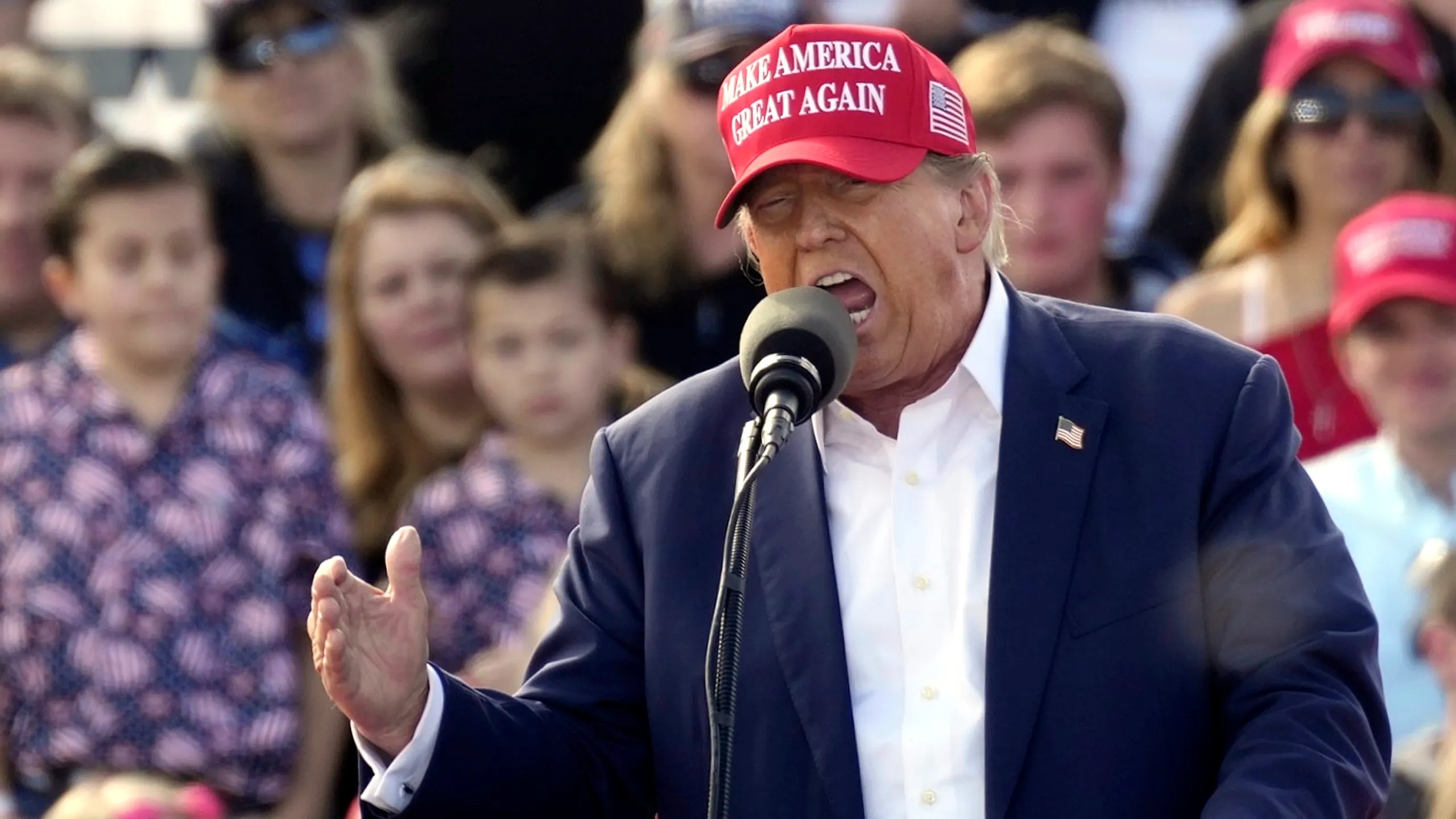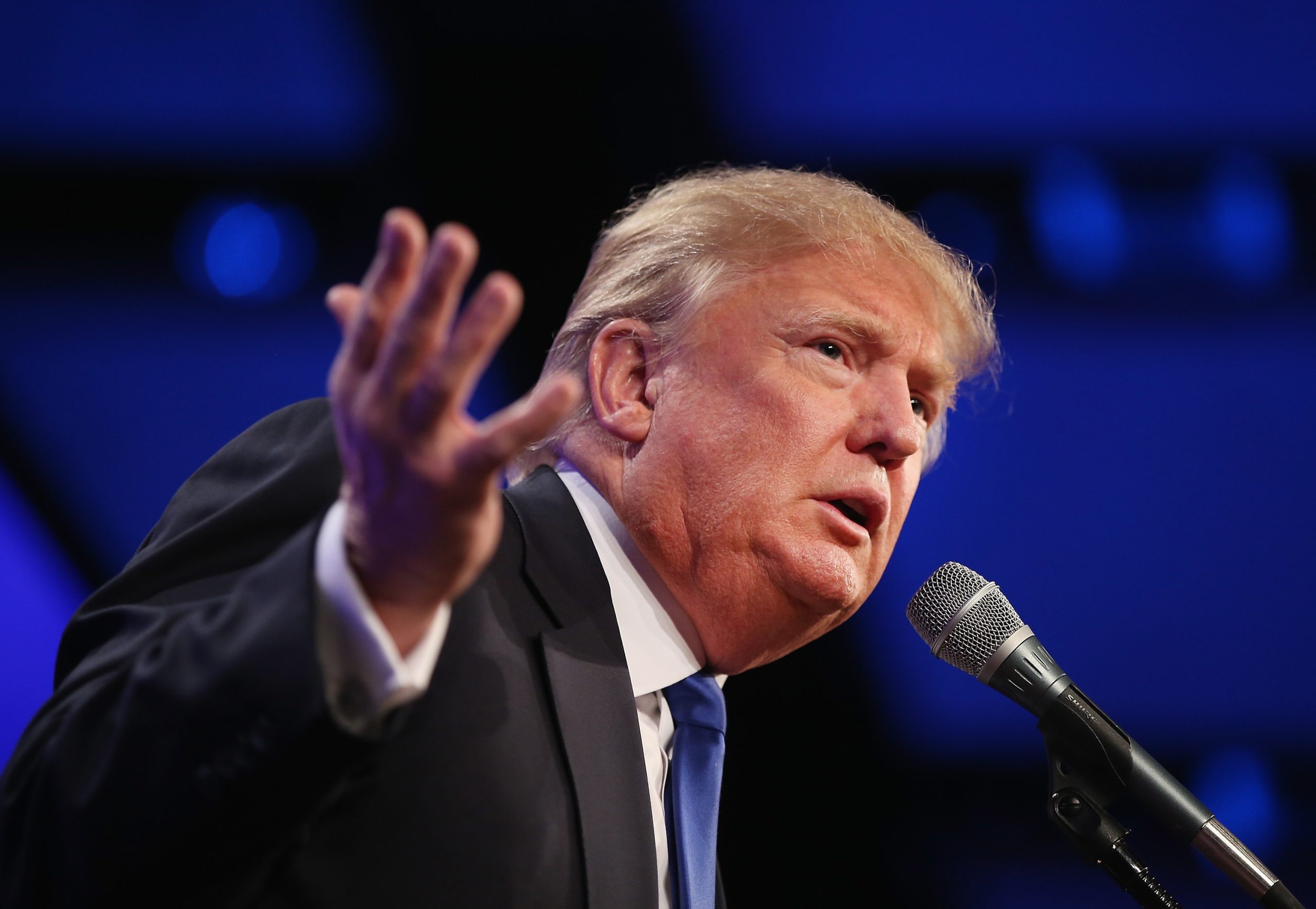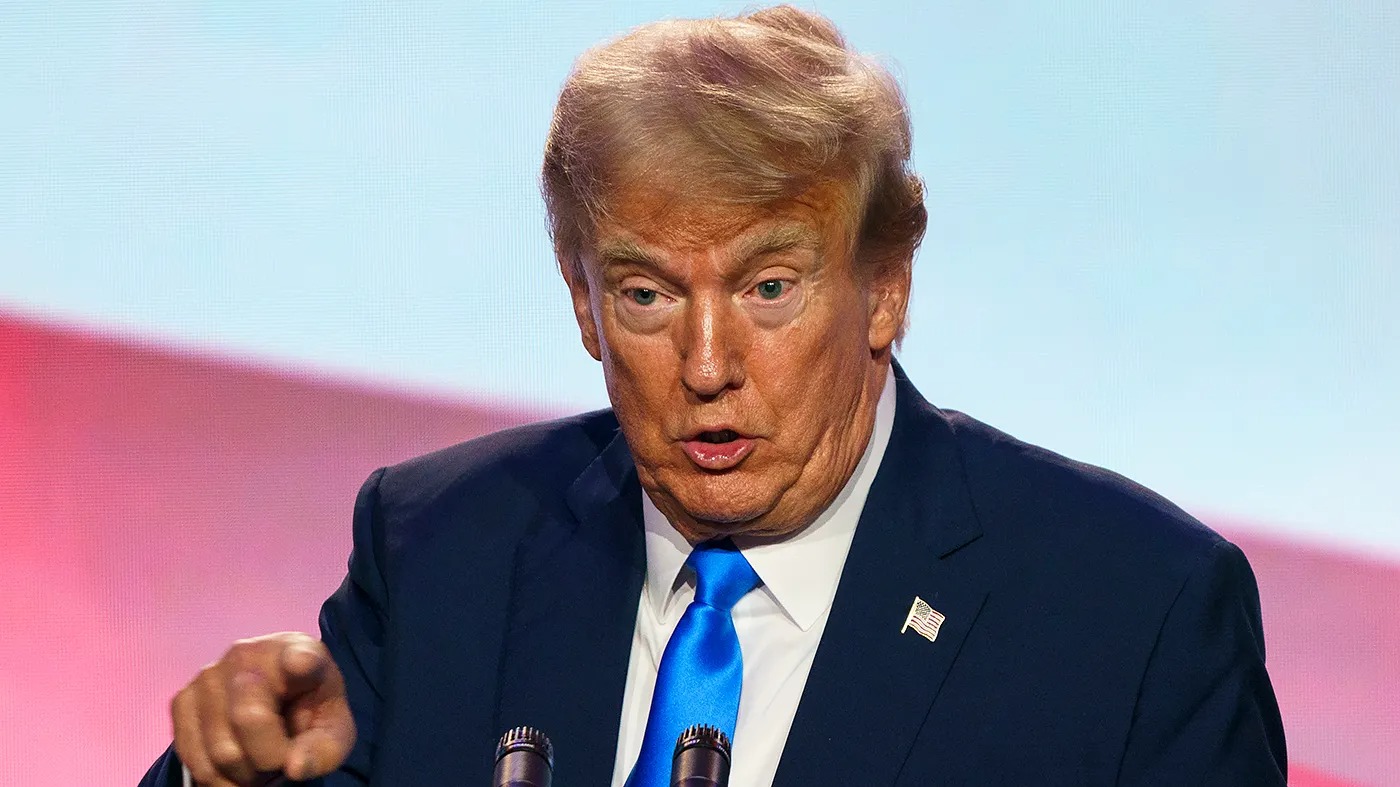During a recent interview on Sebastian Gorka’s web show, former President Trump ignited controversy with a bold assertion, claiming, “Any Jewish person that votes for Democrats hates their religion.”
This striking statement emerged within a broader discussion centered on the Israel-Hamas conflict, sparked by Gorka’s probing into Democratic criticisms directed at Israeli Prime Minister Benjamin Netanyahu and the conservative-led government of Israel.
Trump’s remark underscores the deeply entrenched divisions and complexities surrounding U.S. politics, particularly concerning issues related to Israel and the Jewish community.

Trump (Credits: ABC27)
By suggesting a correlation between Jewish faith and political allegiance, Trump delves into sensitive territory, touching upon identity, loyalty, and ideological affiliations.
The Israel-Hamas conflict serves as a potent backdrop for such discussions, given its historical, religious, and geopolitical significance.
With Democrats and Republicans often espousing divergent perspectives on this issue, Trump’s assertion reflects the polarized nature of contemporary discourse surrounding Israel and its policies.
The notion that voting for Democrats equates to “hating” one’s religion is a contentious and provocative claim, likely to elicit strong reactions and fuel further debate.
It raises fundamental questions about the relationship between political affiliation and religious identity, challenging assumptions and prompting introspection within the Jewish community and beyond.
Trump’s statement also highlights the role of political rhetoric in shaping perceptions and influencing electoral behavior. By framing the choice between political parties in stark terms of religious loyalty, Trump seeks to rally support among Jewish voters while simultaneously disparaging Democratic positions on Israel-related matters.
However, such rhetoric risks oversimplifying complex issues and alienating segments of the electorate. It overlooks the diversity of opinions and experiences within the Jewish community and disregards the nuanced considerations that inform individuals’ voting decisions.

Donald Trump (Credits: Bloomberg)
Trump’s assertion raises concerns about the weaponization of religion for political gain, as well as the potential for division and exclusion within society.
By suggesting that one’s political preferences determine one’s fidelity to one’s religion, Trump perpetuates a divisive narrative that undermines the principles of pluralism and tolerance.
In response to Trump’s comments, Democratic leaders and Jewish organizations have condemned his characterization as divisive and inflammatory.
They emphasize respecting diverse viewpoints and fostering dialogue and understanding, particularly on sensitive issues like Israel and the Middle East.
Trump’s assertion also reflects broader trends within contemporary politics, characterized by polarization, identity politics, and the weaponization of rhetoric.
As the debate surrounding Israel and its relationship with the United States continues to evolve, Trump’s remarks serve as a stark reminder of the challenges and complexities inherent in navigating these contentious issues within the political arena.
























